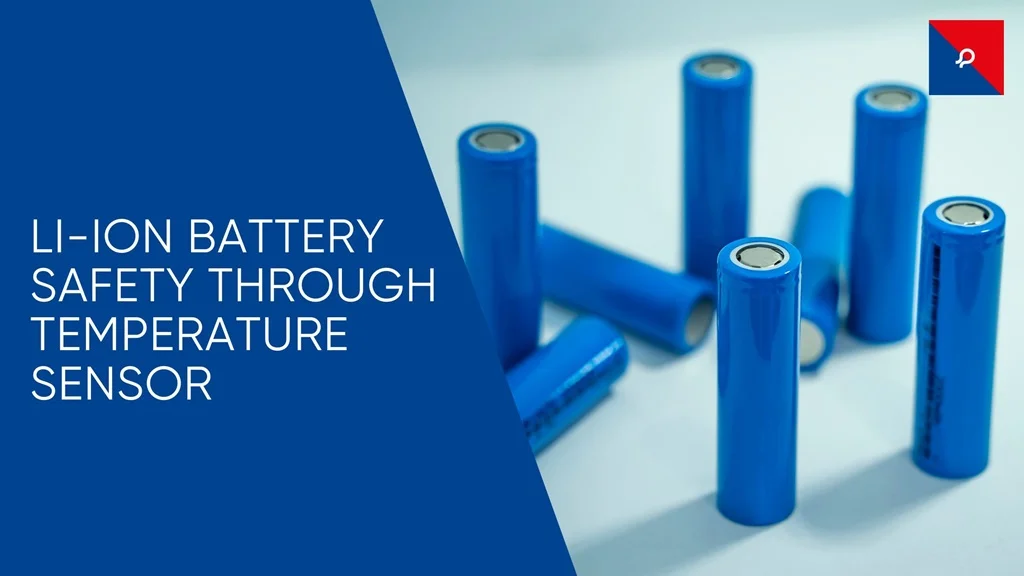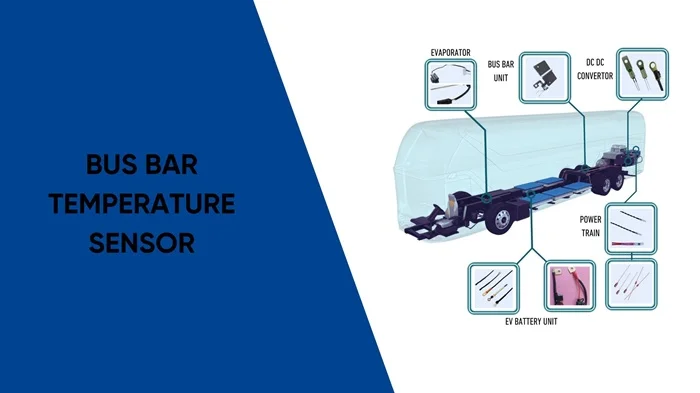
NTC Thermistor Temperature Sensors: The Unsung Heroes of Li-Ion Battery Safety
NTC Thermistor Temperature Sensors: The Unsung Heroes of Li-Ion Battery Safety

People can observe the significance of battery temperature controls when their smartphones heat up in hot weather or when their laptops become too warm. Lithium-ion (Li-ion) battery technology provides power to all our contemporary devices, including smartphones, tablets, electric vehicles, and medical instruments, as NTC thermistor temperature sensors protect the systems that benefit from great power.
NTC thermistor temperature sensors operate as miniature safety systems to maintain appropriate temperature levels throughout Li-ion battery temperature sensors when they operate. NTC thermistor temperature sensors play a crucial role in preventing overheating because the absence of these components could trigger various safety risks, including performance problems and battery damage, leading to dangerous fire situations. This blog will explore the protective mechanisms of NTC thermistor temperature sensors as they manage the safety and durability of Li-ion batteries.
Why Is Temperature Monitoring Important for Li-Ion Battery Temperature Sensors?
These batteries deliver impressive power alongside having delicate operational needs. The optimal operational range for these batteries exists between 20°C to 45°C inclusively (68°F to 113°F). The extreme temperatures, either hot or cold reduce their operational performance while also decreasing their expected lifespan. The battery may trigger uncontrolled heat generation that could result in extreme conditions leading to fire or explosion.
The purpose of this information is not to deter you from performing phone battery charges. NTC thermistor temperature sensors protect from problems by continuously watching battery temperatures while taking proper protective actions.
What Are NTC Thermistor Temperature Sensors?
First things first, NTC stands for Negative Temperature Coefficient. An NTC thermistor operates as a temperature-sensitive resistor because it shows resistance variation according to thermal fluctuations. An elevation of temperature leads to reduced resistance in these sensors because of their Negative Temperature Coefficient property, thus enabling accurate real-time heat measurement.
Audio systems prefer using NTC thermistor temperature sensors for Li-ion battery monitoring owing to their quick responses combined with the best accuracy rate available in the market alongside extreme durability. These small, cost-effective sensors can easily join battery management systems (BMS) to transform into vital elements in contemporary electronics and electric vehicles.
How NTC Thermistors Keep Li-Ion Batteries Safe
So, how exactly do these sensors work their magic? Let’s break it down:
Real-Time Temperature Monitoring
The absence of a temperature gauge in your car would force you to discover an overheating engine at a time when it is already too hot. Constant temperature monitoring is necessary for Li-ion batteries because of this reason.
The battery management system (BMS) obtains live temperature feedback from NTC thermistor sensors, which enables it to adjust operations. The system implements different protective measures, such as gradual power output reduction and charging slowdown, as well as a complete shutdown to protect the battery from damage when temperature increases.
Preventing Overcharging and Overheating
Battery failure and overheating emerge mostly from overcharging functions. A Li-ion battery produces excessive heat when electricity enters it beyond its full charge state. The system receives a warning from NTC thermistors, which triggers it to stop charging to avoid dangerous situations.
A thermistor enables your smartphone and laptop devices to stop charging through an automated process during full battery conditions.
Enhancing Battery Lifespan
Batteries hate extreme temperatures. The normal operation of Li-ion batteries at elevated temperatures accelerates their degradation rate by approximately two times. Using NTC thermistor temperature sensors to maintain optimal temperature ranges will extend battery life which results in devices lasting longer until replacement is necessary.
Ensuring Safety in Electric Vehicles (EVs)
Li-ion battery packs installed in electric vehicles produce substantial heat when the vehicles operate. NTC thermistors act as heat distribution monitors that function across the entire battery pack continuously.
The system detects heat in a particular battery cell by using power distribution features to cool and stop operation in case of dangerous overheating. The application of such systems stands essential for protecting both the vehicle's operational smoothness and preventing battery-caused incidents that affect safety.
Where Are NTC Thermistor Temperature Sensors Used?
NTC thermistors remain crucial because Li-ion battery temperature sensors appear inside every modern electronic product. Thus, multiple industries heavily depend on them for operation.
- Smartphones, along with laptops and tablets, depend on thermistors to protect against overheating while improving battery power longevity.
- Electric Vehicles incorporate thermistors to guarantee safety functionality and maintain efficient battery cooling operations, which thereby extends the range and service life of vehicles.
- Storage devices in battery-based medical instruments use thermistors for critical operation failure prevention.
- Thermistor devices assist industrial power tools along with machinery by ensuring proper operating temperature ranges for Li-ion batteries.
Why NTC Thermistor Sensors Are the Best Choice
The monitoring of battery temperature can be achieved using NTC thermistors because they deliver exceptional accuracy and quick response capabilities and deny industrial usage.
- The system shows high precision when detecting temperature fluctuations in small intervals.
- The device responds instantly to temperature rises, which helps stop equipment damage.
- The components demonstrate high durability by facing challenging conditions that enhance their performance in electric vehicles and industrial needs.
- An attractive feature of NTC thermistors is their small size which fits all battery packs at prices manufacturers can afford.
JR Sensors - An Unsung Hero of NTC Thermistors Sensors
JR Sensors exists as a recognized supplier of superior NTC thermistor temperature sensors, which deliver accurate and dependable temperature monitoring capabilities for battery temperature sensors. JR Sensors provides thermistor sensors that protect against overheating while increasing battery durability and safety within EVs and industrial equipment along with consumer electronics. JR Sensors delivers durable thermistors that use advanced technology and perform fast while maintaining precision through their dedication to quality equipment. JR Sensors provides critical solutions for battery management systems that enable efficient as well as secure energy management.
Final Thoughts
Small as they are, NTC thermistor temperature sensors play an immense safety function in Li-ion battery applications. These sensors continuously work inside smartphones, laptops, and electric vehicles to check the temperature, stop overheating, and improve storage capacity.
Take note that the NTC thermistor temperature sensor operates silently to keep your electronics cool while baking and your EV running without issues.
Frequently Asked Questions
1. What is an NTC thermistor temperature sensor, and how does it work?
2. Why are NTC thermistors important for Li-ion battery safety?
3. Where are NTC thermistor temperature sensors used?
4. Can NTC thermistors improve battery lifespan?
6. What is the NTC thermistor for Li-ion battery?
7. Is a battery temperature sensor necessary?
8. What is the temperature sensor on a LiPo battery?

Busbar Watchdogs: The Tiny Sensors Preventing Massive Power Failures
Think of them as your system’s early warning system. Busbar temperature sensors silently protect power grids, data centers, and switchboards from overheating, fire, and failure. Discover why this small sensor plays a big role in electrical safety and uptime.

Beyond Specs: 5 Must-Know Factors When Choosing a Thermistor Sensor Manufacturer
Not all thermistor manufacturers are created equal. Whether you're building a medical device or a smart appliance, this guide breaks down the 5 key factors that ensure you get precision, reliability, and peace of mind.

Burnt Biscuits? Blame the Sensor – The Hot Truth About Your Oven’s Temperature Troubles
If your oven’s cooking like it’s got a mind of its own, your temperature sensor might be the silent saboteur. From half-baked casseroles to scorched cookies, we break down how this little sensor works, why it matters, and how to fix it—without losing your cool (or your dinner). A fun, practical guide that’s just as useful as it is digestible.